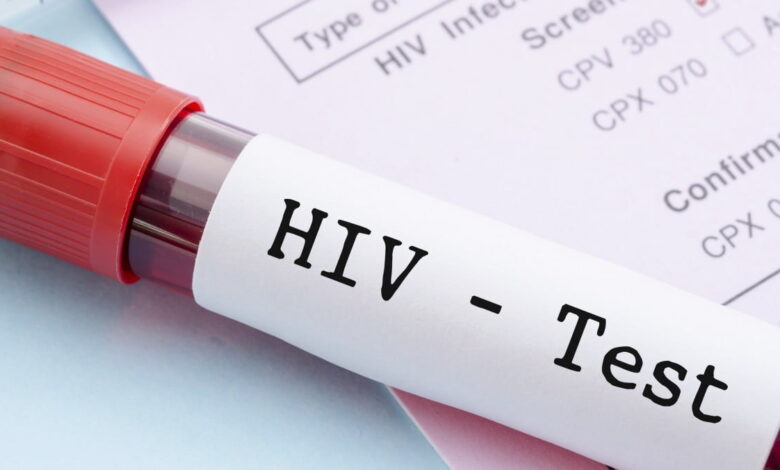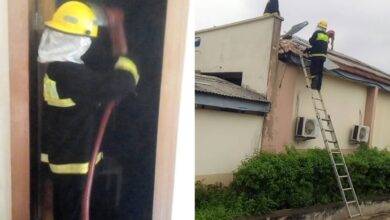Group calls for intensive sexuality education as 4,000 girls get infected with HIV weekly

As the world marks the day of the girl child on October 11, the AIDS Healthcare Foundation, AHF, has called for intensive sexuality education and empowerment of adolescent girls and young women in
Nigeria.
This is even as it noted that over 4,000 young women aged 15-24 are reportedly infected with HIV across the globe on a weekly basis, with more than 3,300 of those cases in Sub-Saharan Africa.
The Nigeria Country Programmes Director of AHF, Dr Echey Ijezie made the call during the commemoration of the 2025 International Day of the Girl Child in Uyo, Akwa Ibom capital, themed, ‘The girl I am, the change I lead: Girls on the frontline of crisis’.
He said to stem the tide of HIV spread among adolescents, there should be deliberate efforts by authorities to come up with programmes and policies that would expand access to healthcare, including sexual and reproductive health services for adolescent girls and young women, increased investment in the prevention, testing and treatment programs for HIV/STI as well as tackling what he termed as “period poverty”.
Ijezie who stated that the event was aimed at protecting girls from HIV, honor their achievements, and reinforce the urgent need to expand opportunities for them to thrive and stay healthy, lamented that young girls still face challenges of poor menstrual health and limited access to reproductive health services and child marriage.
Parts of the statement read, “Globally, adolescent girls and young women face a disproportionate HIV burden. At AHF Nigeria, we are particularly concerned about the challenges that young adolescent girls are faced with – lack of access to education, poor menstrual health management, gender-based violence and a lack of access to comprehensive sexual and reproductive health (SRHR) services, which puts many young girls at risk.
“Despite progress, the numbers remain alarming. Every week, 4,000 young women aged 15–24 become newly infected with HIV, with more than 3,300 of those cases in sub-Saharan Africa.
“In 2023, 1.9 million adolescent girls and young women were living with HIV, compared to 1.2 million boys and young men of the same age. Education barriers are also severe, with 133 million girls worldwide out of school, cutting off vital pathways to future independence and healthy lives.”
The keynote speaker, Inibehe Silas Etukudo, who is the Commissioner for Women Affairs and Social Welfare in Akwa Ibom, said despite the challenges girls face, they still break barriers in all their endeavors demonstrating that crises do not define them; instead, they shape solutions.
The commissioner promised to create opportunities where their voices and ideas would be heard, their leadership skills nurtured, and their potentials unleashed even as she revealed that the state was working towards securing funding and programs that would empower girls-from scholarships to health initiatives.
Also speaking, the State Cordinator of AHF, Dr. Ekemini Essien, said girls all over the world are disproportionately affected by HIV AIDS and faced with a lot of abuse with very little opportunities unlike their male counterparts.
He said authorities should as a matter of urgency address the issue by empowering girls with necessary tools, knowledge and skills to excel even as he tasked the girls on resilience for a secured future.
On her part Jessica Charles, the linkage Cordinator of AHF in the state harped on the need for a girl-child empowerment. She said empowerment must not be economic, but access to right information, healthcare, education and taking decisions. She charged the girls to always stand tall and speak up against any form of abuse.
“This is not the time when you should be shy about how you feel about your reproductive health. Speak up against any abuse. I know a lot of girls are abused, and their parents are covering up, please speak up, because there will always be somebody out there who wants to champion your cause,” she admonished.
In an interview, one of the participants, Rhoda Vincent, thanked AHF for identifying with the girl child and going further to empower them especially in Sexual Health Right and gender equality and encouraged the peers to remain steadfast not forgetting to take their menstrual hygiene seriously.
Highpoint of the occasion was the distribution of disposable and reusable sanitary pads, toiletries and talk and linkage of adolescent young girls to mentoring opportunities in the state.





